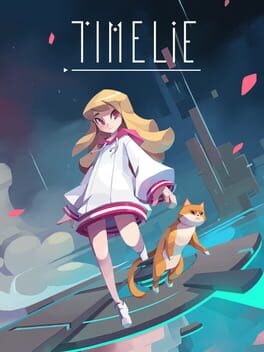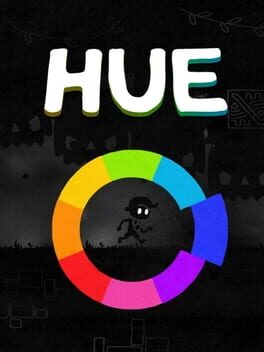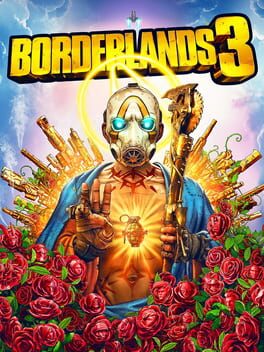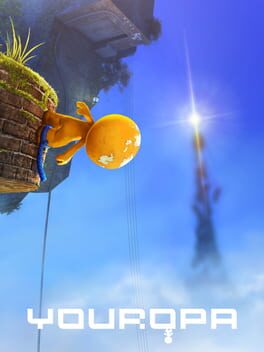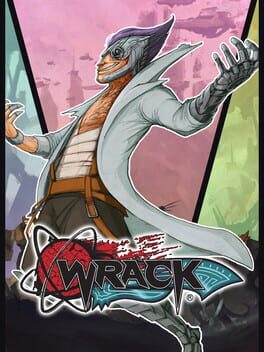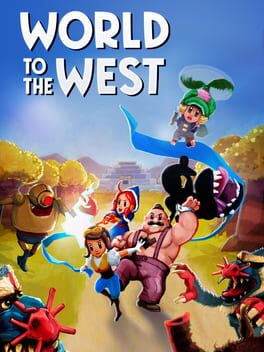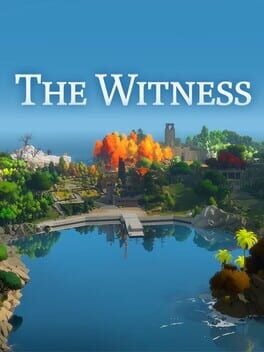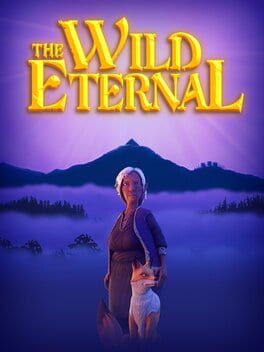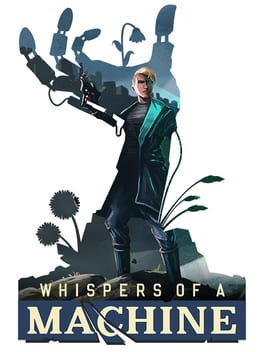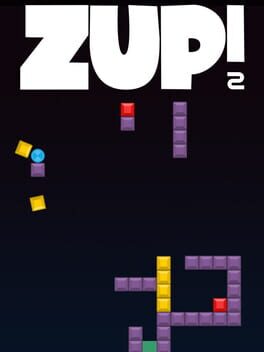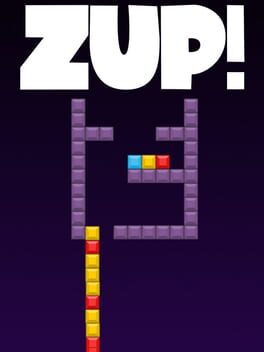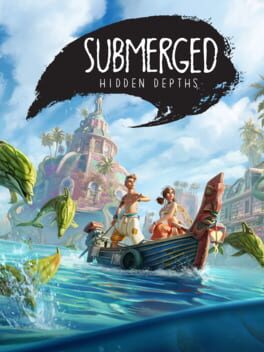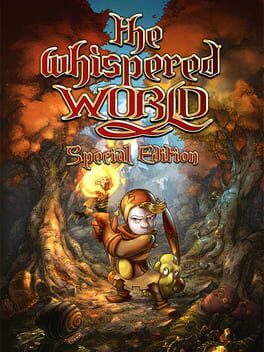TidB
2019
I cannot possibly write something really new on this, so I'll just say why I appreciate it. First of all, it deals with concrete political themes which indie games, albeit trying to be philosophical, don't get to - no need to go for 'what makes us human' and the like questions, but straight-up union, police, racism, cultural heritage, faction topics.
Secondly, the depiction of internal dialogue as different subsystems is really inspiring. It feels so good for a voiceless protagonist to have a voice and a thought process. I'm still not quite sure about the D&D-like random checks - I am aware that a fail really just means 'the story continues, but in a different way' - but it has somewhat won me over because it's reasonable and it's fun to see how everything turns out.
Thirdly, it's the best approach to grimdark stories yet - not that it's trying to be grimdark, but it shows that you can have humanity and good things at all points, and not a constant flow of terrible actions and everything's shitty and every person you meet is really terrible (and probably addicted to drugs). >observer_ could've been better if it were more like this.
Generally, I liked its commitment to the world reminiscent of sci-fi books drowning you in technobabble though at some point I just couldn't store any more information on all the names that sometimes get spit out rapidly, similar to the writing style which sometimes just went over my poor English-as-a-second-language brain. One interesting thing I find noteworthy though: We again have a situation where the environment is described as a city, but during gameplay, it all feels like a town, everyone knowing each other and a good sense of stability, similar to what we've discovered in Whispers of a Machine. Obviously, a hectic space with lots of strangers popping in and out, a grand scale and lots of non-leads wouldn't make much sense for this game, but I do wonder if and how we could get a feel of a city in narrative games.
Secondly, the depiction of internal dialogue as different subsystems is really inspiring. It feels so good for a voiceless protagonist to have a voice and a thought process. I'm still not quite sure about the D&D-like random checks - I am aware that a fail really just means 'the story continues, but in a different way' - but it has somewhat won me over because it's reasonable and it's fun to see how everything turns out.
Thirdly, it's the best approach to grimdark stories yet - not that it's trying to be grimdark, but it shows that you can have humanity and good things at all points, and not a constant flow of terrible actions and everything's shitty and every person you meet is really terrible (and probably addicted to drugs). >observer_ could've been better if it were more like this.
Generally, I liked its commitment to the world reminiscent of sci-fi books drowning you in technobabble though at some point I just couldn't store any more information on all the names that sometimes get spit out rapidly, similar to the writing style which sometimes just went over my poor English-as-a-second-language brain. One interesting thing I find noteworthy though: We again have a situation where the environment is described as a city, but during gameplay, it all feels like a town, everyone knowing each other and a good sense of stability, similar to what we've discovered in Whispers of a Machine. Obviously, a hectic space with lots of strangers popping in and out, a grand scale and lots of non-leads wouldn't make much sense for this game, but I do wonder if and how we could get a feel of a city in narrative games.
2020
This is actually a pretty good puzzler - it's similar to the Hitman Go variants, but gives you more freedom to evade enemies narrowly, not tied to an extremely rigid logical grid. As a savescumming hitman player, this does feel right, as replaying and optimizing your timeline feels more direct. Thematically it's very indie and unsurprising (cat cute, environment bad, it's actually a metaphor for...) but as I'm once again asking you to not describe games like this as an 'adventure', it's not that big of a problem. Might actually be one of the best puzzlers I've played yet.
2016
A nice little puzzler, I think it just falls into the indie trap of making something philosophical which doesn't suit it. A simple story can work fine, but here you get not only 'does everybody see color differently?', but also 'does something exist if you cannot perceive it?' and the Sapir-Whorf hypothesis (oh no!). It's just too much too quickly. But hey, you still get a lot of puzzles.
2019
Mind-numbingly exhausting in every way, an absolutely terrible experience. It doesn't try to build upon its predecessors, it's basically the same as the Pre-Sequel with more memorable antagonists. Instead, it's even more sluggish mainly because its story refuses to end, collecting keys to build keys to do something but unfortune strikes and you take a detour, for 30+ hours.
The story is very much superhero-esque, the most important things happen in cutscenes with bewildering consequences and actions that make no sense - the worst death scenes I've ever seen, as well as a shoehorned bittersweet ending with basically no setup. The only good things about it were Lilith and maybe Tina. Everything you expect happens, Claptrap does something dumb in the beginning, people die, people didn't actually die, some new concept about the vaults springs into existence, there's nothing new.
The balancing is once again atrocious, but instead of being under- you're much rather overpowered, ending most boss fights hilariously quickly. It's not helped by the hyperinflation of legendary weapons appearing, every second skag has one, and especially during the last chapter it's not surprising to find at least 20 of those - giving you no time to try them out, much less store them. Even with great power, it's a slug to navigate the last quarter because the levels are overly long filled with the same enemy types over and over and over.
I think this all mainly points to a complete collapse of the direction and management, which is sad to see. There seem to have been big cuts or changes in the story, and there has been no time to fix the numerous glitches, UI and UX issues that are still apparent now, three years later.
Play Borderlands 2 instead.
The story is very much superhero-esque, the most important things happen in cutscenes with bewildering consequences and actions that make no sense - the worst death scenes I've ever seen, as well as a shoehorned bittersweet ending with basically no setup. The only good things about it were Lilith and maybe Tina. Everything you expect happens, Claptrap does something dumb in the beginning, people die, people didn't actually die, some new concept about the vaults springs into existence, there's nothing new.
The balancing is once again atrocious, but instead of being under- you're much rather overpowered, ending most boss fights hilariously quickly. It's not helped by the hyperinflation of legendary weapons appearing, every second skag has one, and especially during the last chapter it's not surprising to find at least 20 of those - giving you no time to try them out, much less store them. Even with great power, it's a slug to navigate the last quarter because the levels are overly long filled with the same enemy types over and over and over.
I think this all mainly points to a complete collapse of the direction and management, which is sad to see. There seem to have been big cuts or changes in the story, and there has been no time to fix the numerous glitches, UI and UX issues that are still apparent now, three years later.
Play Borderlands 2 instead.
2016
Even for 2016, this is just too uninspired in every way - which makes me notice that it's rather short too. I usually don't talk about the time to beat, mainly because it purely views games as a product with longer = better, or the terrible phrase 'value for your money'. But in this case, you're paying about 2€ for 2 hours of not-really-entertainment. Maybe if it's in a bundle and you don't wanna play Hexcells while watching a video?
2018
A fairly okay puzzler which gets literally elevated by its one trick, the low-gravity Eiffel Tower which is reminiscent of Image Comics' Skyward. It's well integrated and provides you a semi-stable harbor to test out new skills and advance to new places. The rest is rather standard, but still nice to see a fragmented city that's not completely apocalyptic. And who can deny that climbing up a tower is a simple but always captivating story.
2014
I'm currently in my 'just play Severed Steel instead' phase and I stand by it, but I wonder how it'll hold up, because Wrack seems similar in its way of fast combat (albeit melee and kill chain focused) and I never really thought about it after playing it - it's always been one of those games that try to evoke old fast-paced shooters but they're not one of the mainline. Though it's a shame to see not many people have finished it.
2017
This is one of those indie games that inexplicably go on and on, sometimes a little too long. And it's fine, there really isn't much to talk about - a good gameplay loop of different characters doing different things, and you need to switch between them to go forward. While entertaining for a fair bit, the world grows larger and larger and stretches the narrative to a thin filament. In that way, it's reminiscent of Evoland - it's missing a purpose.
2016
It is a very opinionated game which is great and works most of the time. Combining rigid puzzles with environmental cues is phenomenal and a blast to figure out - even better once you notice the fully environmental patterns. Or possibly worse, because once you notice them, you don't really want to go back to the hundreds of white square screens which can start to overstay their welcome.
I see the inclusion of audio logs and the theater as an attempt to curate philosophical texts, but to what end? Do I half-heartedly listen to them while actually thinking about where a squiggly line goes around tetris blocks? Do I sit in a dimly lit theater to watch a FMV playback? Do I stare out into the sea while listening like some kitschy screensaver? I think you're better off reading an actual book or view a lecture recording directly.
In the end, putting it all on an inexplicably diverse island out in the ocean is defining. It's isolated and alien, but so are its areas and audiovisual fragments. I don't see it as a philosophical masterpiece and neither as pretentious - it's expecting players to insert their own meaning or none at all more than any other game. But it is strange that it stops being opinionated at exactly this point.
I see the inclusion of audio logs and the theater as an attempt to curate philosophical texts, but to what end? Do I half-heartedly listen to them while actually thinking about where a squiggly line goes around tetris blocks? Do I sit in a dimly lit theater to watch a FMV playback? Do I stare out into the sea while listening like some kitschy screensaver? I think you're better off reading an actual book or view a lecture recording directly.
In the end, putting it all on an inexplicably diverse island out in the ocean is defining. It's isolated and alien, but so are its areas and audiovisual fragments. I don't see it as a philosophical masterpiece and neither as pretentious - it's expecting players to insert their own meaning or none at all more than any other game. But it is strange that it stops being opinionated at exactly this point.
2017
I actually bought this. Along with its nephew The First Tree, it shows a post-Firewatch game world filled to the brim with oversaturated environments. In contrast, it dives deep into fantasy storytelling, which unfortunately never clicks for me. It's reminiscent of late-stage Genshin Impact stories - constant reveals of new, otherworldly mechanics in a dialogue between a fickle protagonist and an all-knowing companion. I think toning down the environments would've done a lot to make it stand out more, ironically.
This is a bit weird, because I don't have any strong feelings towards this game, but while trying to explain why, I always end up at something that's actually pretty good. So why is it ultimately just an okay-ish package?
It does extend the classic gameplay a fair amount through more intensive dialogues, different personality paths you can take and different abilities (though those are really just a replacement for items). They're pretty straightforward though and none of these new interactions stand out more than usual puzzles. It's definitely a good alternative for this crime scene investigation gameplay, but I generally don't feel like alternative paths in games offer anything more than linear stories.
It does touch upon different topics including AI singularity, cults and parenthood. I think the latter is fascinating but gets remedied to a subplot, while the overly all-encompassing topics don't stand out. Maybe because the presentation and pacing in the point-n-click genre is tough to manage.
The setting of a town on a pedestal doesn't have any relevance except for one point, and then only for ten minutes. And while there's so much to talk about elsewhere, I think a well-developed environment is very important. At most, the setting is used to convey a vague sense of isolation, but that's not really anything special about this genre. It's also in the weird spot where it's visually presented as a city, but is more of a town socially.
Incongruence is the key: between the limited scope and the grand story, the rigid cage of point-n-clicks and the tense moments, the image of a city and the feeling of a village. I feel there's a need for more intimate stories in sci-fi, and it can be done - take a look at Tacoma.
It does extend the classic gameplay a fair amount through more intensive dialogues, different personality paths you can take and different abilities (though those are really just a replacement for items). They're pretty straightforward though and none of these new interactions stand out more than usual puzzles. It's definitely a good alternative for this crime scene investigation gameplay, but I generally don't feel like alternative paths in games offer anything more than linear stories.
It does touch upon different topics including AI singularity, cults and parenthood. I think the latter is fascinating but gets remedied to a subplot, while the overly all-encompassing topics don't stand out. Maybe because the presentation and pacing in the point-n-click genre is tough to manage.
The setting of a town on a pedestal doesn't have any relevance except for one point, and then only for ten minutes. And while there's so much to talk about elsewhere, I think a well-developed environment is very important. At most, the setting is used to convey a vague sense of isolation, but that's not really anything special about this genre. It's also in the weird spot where it's visually presented as a city, but is more of a town socially.
Incongruence is the key: between the limited scope and the grand story, the rigid cage of point-n-clicks and the tense moments, the image of a city and the feeling of a village. I feel there's a need for more intimate stories in sci-fi, and it can be done - take a look at Tacoma.
2016
2016
Hm. In a way, it's definitely better and more enjoyable than its predecessor, but I would have wished for the improvements to be more substantial. The core mechanic of climbing around is more varied and includes some puzzle aspects, but is still very straightforward. At least the characters are much more lively now; it's a joy to see them climb around. Also the main story is more motivated now, though not very inspiring overall - another tale of nature (good) versus technology (bad). The rest is propped up by a more varied and wayyy prettier environment and lots of collectibles and unlocks.
I just wish it went a little deeper, more puzzles and maybe amend the 'technology bad' theme - the current motif of the cores powering old technological devices could have been presented in a much bigger, overpowering way instead of a few devices in a tent. I do appreciate that it's a more upbeat exploration.
I just wish it went a little deeper, more puzzles and maybe amend the 'technology bad' theme - the current motif of the cores powering old technological devices could have been presented in a much bigger, overpowering way instead of a few devices in a tent. I do appreciate that it's a more upbeat exploration.
Once again an overall pleasant adventure with everything that Daedalic does well - good puzzles, lots of characters, beautiful albeit mostly unmemorable artwork, all sitting somewhere in fantasy land. What I do appreciate is that in contrast to its sequel Silence, this one actually resolves the underlying metaphorical connection instead of resorting to unclear 'ooooOOOooo it's your choice and it's still up to your interpretation' endings.

